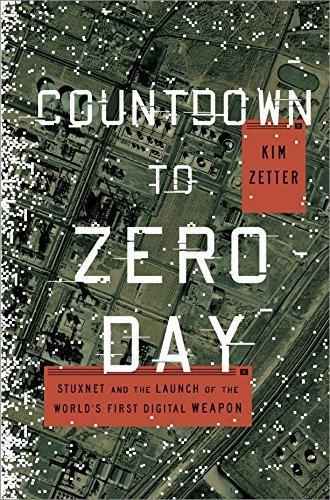406 pages
English language
Published Nov. 11, 2014

406 pages
English language
Published Nov. 11, 2014
The virus now known as Stuxnet was unlike any other piece of malware built before: Rather than simply hijacking targeted computers or stealing information from them, it proved that a piece of code could escape the digital realm and wreak actual, physical destruction—in this case, on an Iranian nuclear facility.
In these pages, journalist Kim Zetter tells the whole story behind the world’s first cyberweapon, covering its genesis in the corridors of the White House and its effects in Iran—and telling the spectacular, unlikely tale of the security geeks who managed to unravel a top secret sabotage campaign years in the making.
But Countdown to Zero Day also ranges beyond Stuxnet itself, exploring the history of cyberwarfare and its future, showing us what might happen should our infrastructure be targeted by a Stuxnet-style attack, and ultimately, providing a portrait of a world at the edge of a new …
The virus now known as Stuxnet was unlike any other piece of malware built before: Rather than simply hijacking targeted computers or stealing information from them, it proved that a piece of code could escape the digital realm and wreak actual, physical destruction—in this case, on an Iranian nuclear facility.
In these pages, journalist Kim Zetter tells the whole story behind the world’s first cyberweapon, covering its genesis in the corridors of the White House and its effects in Iran—and telling the spectacular, unlikely tale of the security geeks who managed to unravel a top secret sabotage campaign years in the making.
But Countdown to Zero Day also ranges beyond Stuxnet itself, exploring the history of cyberwarfare and its future, showing us what might happen should our infrastructure be targeted by a Stuxnet-style attack, and ultimately, providing a portrait of a world at the edge of a new kind of war.